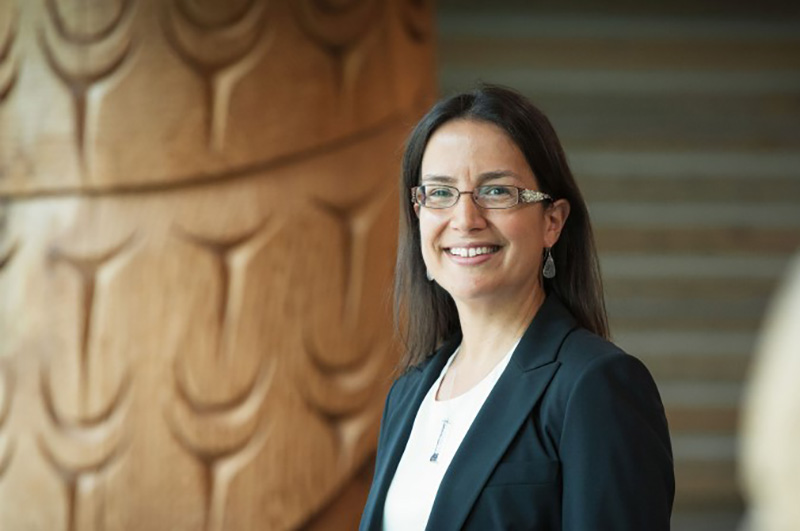Indigenous patients in Canada are 30 per cent more likely to die after surgery than other patients, according to new research. And that’s not going to change without transformational change to address anti-Indigenous racism in health-care systems in B.C. and across Canada, according to the first First Nations woman surgeon in Canada.
A recent review of 28 studies co-authored by Dr. Nadine Caron of the University of British Columbia found that after surgery, Indigenous people die at a rate 30-per-cent greater than other patients.
Indigenous patients also experienced higher rates of post-operative infections and complications than others, despite getting surgeries less often.
The data did not surprise Caron or her co-authors Dr. Jason McVicar and Dr. Alana Poon, but it raises essential questions about what’s causing the poorer outcomes. Are patients waiting longer for surgery, or suffering from poor health that add to their risks?
Caron said it’s important to move beyond those basic questions and look for the underlying causes.
“Is it because of delayed access? Then why is there delayed access? Is it because of the lack of utilization of the health-care services, or that they’re not there at all?” asked Caron, who is a member of the Sagamok Anishnawbek Nation in Ontario and a general surgeon in Prince George.
All these problems are made worse by widespread anti-Indigenous racism in the health-care system, as documented in the In Plain Sight report released in November.
Racism also puts Indigenous people at greater risk for chronic illnesses and early deaths from causes like toxic drugs.
Caron, who is co-director of UBC’s Centre for Excellence in Indigenous Health, said the relationship between Indigenous people and the health-care system need careful examination.
“Is the problem not particularly the access, but the lack of access to culturally safe care, to a health-care system without racism embedded within the walls of the institutions Indigenous people have to walk into?” she asked.
Surgery is an essential part of health care, Caron said. But there is so much more to one’s health than how smoothly things go while under the knife.
Needing surgery can represent a failure of health services to prevent a condition from worsening due to factors driven by systemic racism. Evidence of poorer outcomes demonstrates “the necessity to ensure that we address the In Plain Sight report, and eliminate Indigenous-specific racism and racism as a whole in our health-care system,” said Caron.
Many Indigenous patients have their concerns dismissed, delaying things like cancer screening. Others avoid care altogether because of past experiences of racism. Both contribute to worsening health, increased chances they will need surgery, and delays in needed treatment.
“Screening for breast cancer, or colon cancer or cervical cancer, can actually play a preventative role in actually ever needing surgery for those types of cancers,” said Caron.
Cultural safety and anti-racism work are essential in all settings, not just the operating room, she said. Physiotherapy, massage and followup appointments with a surgeon and family physician can be essential to catching any complications in time to be treated and corrected.
And the underlying causes of poor outcomes, like poverty and lack of access to clean water, adequate housing, medications or medical equipment must be addressed, she added.
For Caron, there is a difference between naturally-occurring obstacles like travel distances from remote communities and the barriers the health-care system has the power to change.
Prince George, where Caron practises, serves as a hub for patients from many northern and remote First Nations communities who fly or drive long distances for care.
The city, with a population of 82,000, still has fewer specialized health-care services, like physiotherapy or surgical specialists, than Kamloops or Vancouver.
The health-care system has “a moral responsibility to eliminate” barriers, she said. “The fact that you have to travel further when you live in a rural remote northern community is something that you can’t control,” she said. But the health-care system needs to recognize the challenge and identify solutions that ensure effective care.
The First Nations Health Authority pivoted quickly to virtual health care during the pandemic, for example, a strategy Caron says can make followup care more easily available to people in rural and remote First Nations now and in the future.
The province has also committed to implementing all 24 recommendations of the In Plain Sight report, pledging “transformational change” to address anti-Indigenous racism.
But Caron says while the province works on creating cultural safety in all corners of the health-care system, First Nations, Inuit and Métis communities and individuals must be at the centre of the process.
“We need to bring Indigenous voices to the table, and we need to do research specifically with and by First Nations peoples and Métis and Inuit in order to find answers and solutions for our people,” said Caron. ![]()
Read more: Indigenous, Health, Rights + Justice
















Tyee Commenting Guidelines
Comments that violate guidelines risk being deleted, and violations may result in a temporary or permanent user ban. Maintain the spirit of good conversation to stay in the discussion.
*Please note The Tyee is not a forum for spreading misinformation about COVID-19, denying its existence or minimizing its risk to public health.
Do:
Do not: